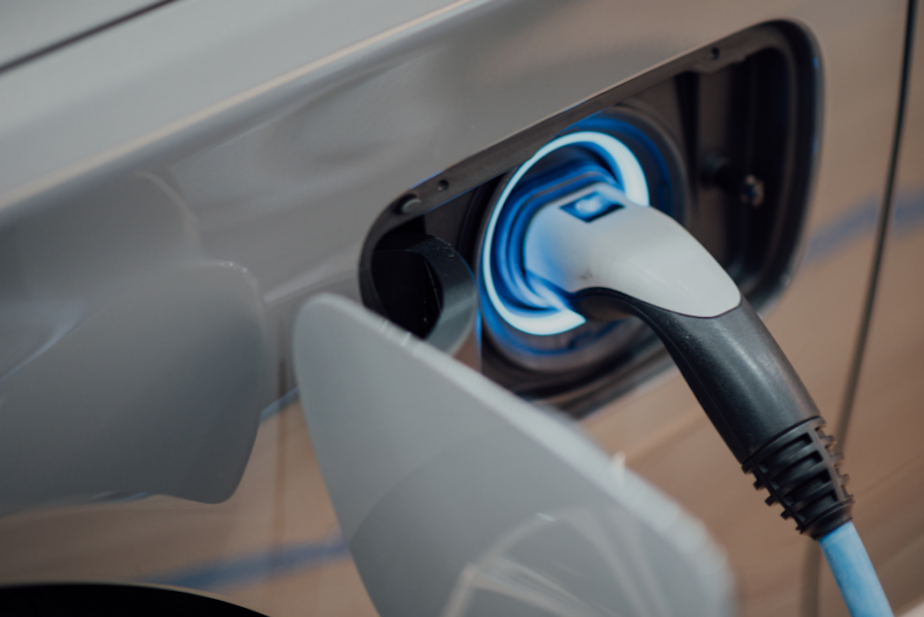More than 20% of new cars purchased in Washington state are electric (boogie woogie woogie)

Demand for electric vehicles has been surging more in Washington than in any other state, according to data provided by the Electric Power Research Institute.
One in five new cars sold in Washington in 2023 can plug into an electrical outlet.
EVs’ market share in the Evergreen State was higher than in any other state except California, and its growth was the highest in the country in 2023.
RELATED: Road trip! Kicking the tires on electric travel in the Northwest
Sponsored
“Washington’s really proud to be second in the country behind California in percent market share of EVs,” Steven Hershkowitz with the Washington Department of Commerce said on a panel organized by Oregon-based trade publisher, NewsData. “We've now exceeded 20%, in several months.”
Electric vehicles’ share of new passenger-vehicle sales rose from 18% in the first half of 2023 to 23% in the second half, according to Washington Department of Licensing data.
Electric vehicles made up 25% of new-car sales in California in 2023 and 15.4% in Oregon, the third-ranked state. Nationwide, plug-in vehicles had 9.4% market share, according to the Electric Power Research Institute.
Despite its high concentration of plug-in vehicles, Washington ranks 12th in the country in the number of fast chargers per capita, according to a tally by climate journalist Michael Thomas.
Having fewer cars burn gasoline is central to Washington state’s strategy for fighting climate change. The rapid adoption of electric vehicles has Washington ahead of schedule on its legal mandates to transition to zero-emission vehicles: 68% of new cars must be pollution-free by 2030 and all new cars by 2035.
Hershkowitz said with Washington’s recent rates of growth, 90% of new car sales would be pollution-free by 2030. But he said he expects the state’s brisk pace to slow down as carmakers adjust to boost electric-vehicle sales in states that are lagging.
RELATED: Pollution is problematic for pollinators — and perhaps your produce
Nationally, sales of plug-in cars, while still growing, are growing more slowly than earlier in 2023.
Eva DeCesaro with Portland General Electric, Oregon’s largest electric utility, said the relatively new technology is seeing a shift from “early adopters” to mass-market buyers.
Sponsored
Early adopters are more accepting of inconvenience, “whether it comes from having to figure things out themselves or charging infrastructure that wasn't working,” DeCesaro told the NewsData panel. “We need to continue to step up in this space and improve for the customer experience.”
A lack of reliable places to charge up keeps some drivers from wanting to go electric. Utilities and state agencies say they’re working to fix that.
In Oregon, which ranks 6th in the U.S in fast chargers per capita, Portland General Electric is starting to invest in what it calls “neighborhood chargers”— vehicle charging stations installed on power poles.
“We have a lot of utility poles out there, and it costs a lot less to put a charger on one of those because you're not having to trench anything,” DeCesaro said.
She said the utility is targeting areas with high-density, multifamily housing to make sure renters and others who lack a garage or other off-street parking can join the electric revolution.
Sponsored
“It's most efficient to charge the vehicles where they're already parked, which they're already parked in the right of way. And so are our poles,” DeCesaro said.
Putting chargers 10 feet up the poles also helps reduce the problem of vandalism that some utilities have experienced with charging stations.
In Portland, “it is much more common to see a broken charger handle due to someone dropping it or driving over it than vandalism,” DeCesaro said.
Seattle City Light and Puget Sound Energy spokespeople said their utilities have experienced some vandalism at their vehicle-charging stations.
In an email, Puget Sound Energy spokesperson Gerald Tracy said the utility is starting to install public chargers on its power poles and offers various incentives to homes, workplaces, and others to install charging stations.
Sponsored
In an email, Seattle City Light spokesperson Jenn Strang said that, in addition to various incentives and technical assistance for charger installation, the utility currently has 14 curbside charging stations up and running and plans to install 11 more by the end of spring.




